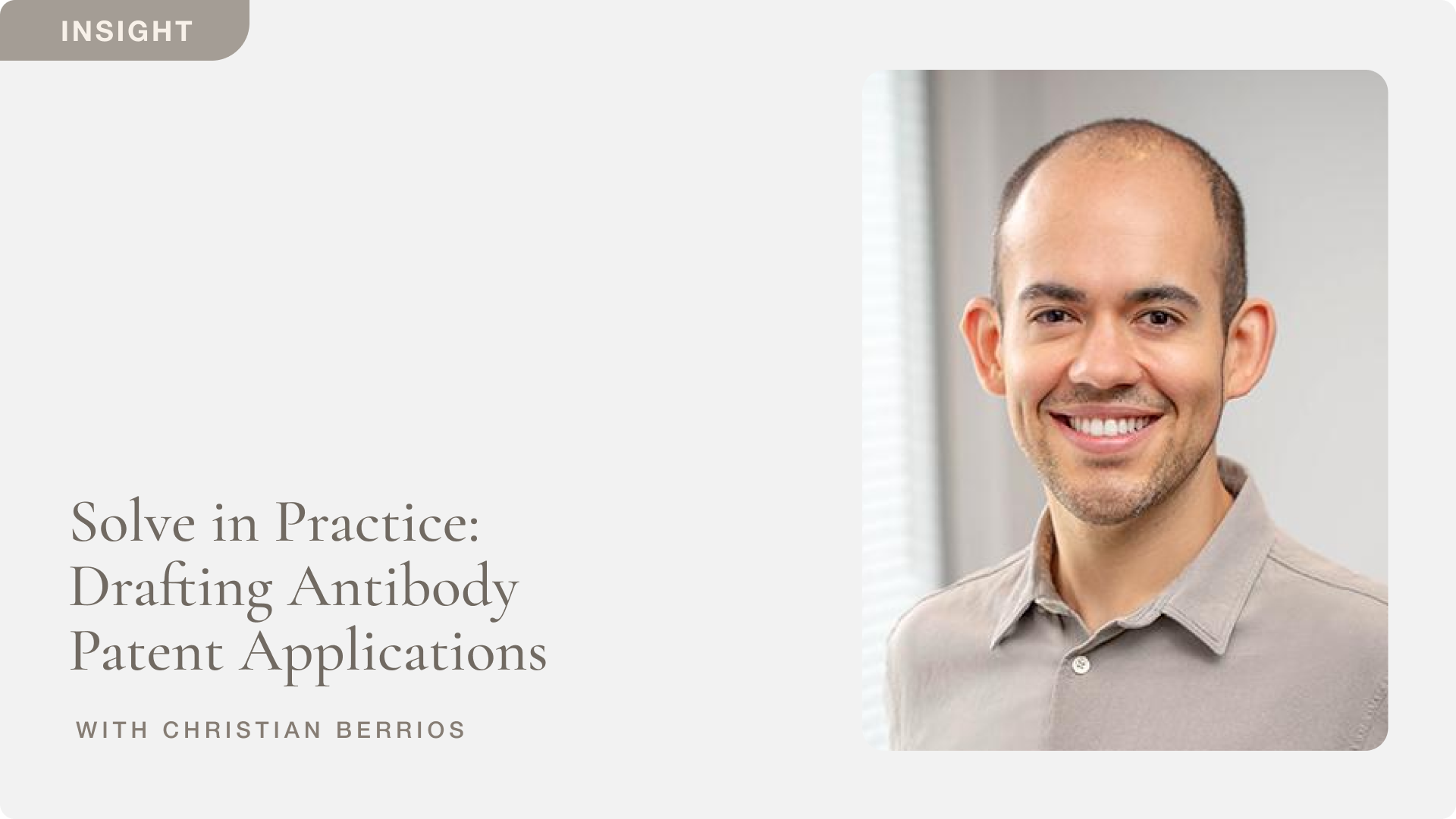Analyzing and Enhancing Invention Disclosures with AI
Solve Intelligence introduces an AI-enhanced document editor that streamlines patent drafting by filling in invention disclosure gaps and preempting competitor workarounds, ensuring comprehensive and robust patent applications.
Drafting a patent application is an intricate process that hinges on the quality and completeness of the initial invention disclosure. However, inventors are often unfamiliar with the rigorous requirements of patent documentation, which can lead to omissions or unclear descriptions in their disclosures. The iterative process to refine these disclosures can be both time-consuming and daunting, potentially deterring inventors from engaging in future patent applications and impacting the productivity and revenue of patent attorneys.
At Solve Intelligence, we've engineered an in-browser document editor equipped with an AI copilot designed specifically for patent professionals. This innovative tool seamlessly integrates into your workflow, functioning similarly to familiar platforms like Google Docs, but with added capabilities to optimize the patent drafting process.
Our platform addresses a critical gap in the patent drafting software market by providing real-time AI analysis of invention disclosures. Whether the disclosure is a comprehensive white paper, a conversational transcript, or simply a few sentences outlining the invention, our AI delves into the content to identify and flag any inconsistencies or areas lacking detail. Unlike other tools, our software does not require a specific document type or structure – attorneys can upload documents in formats such as docx, pdf, txt, or even paste text directly into the editor.
The AI's analytical prowess extends to generating a customized set of questions tailored to extract further details from the inventor or clarify ambiguous terms. This focused inquiry helps in painting a complete picture of the invention, ensuring that the novel and non-obvious elements are clearly identified and described.
Additionally, our AI copilot is designed to brainstorm potential alternative embodiments of the invention. By suggesting slight modifications to the core elements, it aids in foreseeing possible competitor innovations. Incorporating these considerations into a patent application can result in a more comprehensive and robust patent, effectively expanding its defensive breadth.
This capability is particularly significant for those accustomed to using tools like ClaimMaster, as our AI-driven approach offers a more dynamic and proactive method for enhancing invention disclosures. It's not just about drafting a patent application; it's about fortifying the foundation upon which the patent is built – the invention disclosure.
Moreover, our editor simplifies the preparation of an information disclosure statement (IDS). It aids attorneys in ensuring that all pertinent information is disclosed to the patent office, which is crucial for the patentability of the invention. For those seeking a sample information disclosure statement, our editor can provide templates and examples that align with the USPTO requirements, streamlining the patent application process.
In conclusion, Solve Intelligence's document editor is an indispensable tool for patent attorneys aiming to enhance the quality of their patent applications efficiently. By bridging the gap between inventor disclosures and the rigorous demands of patent documentation, our AI copilot supports the development of high-caliber patents, ultimately benefiting both inventors and attorneys in the intellectual property landscape.
AI for patents.
Be 50%+ more productive. Join thousands of legal professionals around the World using Solve’s Patent Copilot™ for drafting, prosecution, invention harvesting, and more.


.png)
.png)

.png)